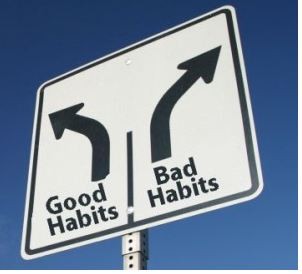Men are pulling their hair out over why they are having an issue with premature ejaculation. They know it’s not genetic, and they have taken out every other contributing factor. What people often don’t talk about is the impact of teenage habits on adult life. Believe it or not, the way a teenager lives their sexual lives can have a serious effect on how their sex lives are when they get older. Read on to find out more about this phenomenon.
Premature Ejaculation as a Whole
 Premature ejaculation is a condition which damages most men at least once in their lives. For most people, it doesn’t matter because they never experience the issue again. Lots of people have to struggle with it for years, though. This can cause them to stop enjoying sex, and in many cases they start to avoid sexual encounters completely, which can seriously detract from any warm and loving relationship.
Premature ejaculation is a condition which damages most men at least once in their lives. For most people, it doesn’t matter because they never experience the issue again. Lots of people have to struggle with it for years, though. This can cause them to stop enjoying sex, and in many cases they start to avoid sexual encounters completely, which can seriously detract from any warm and loving relationship.
The condition commonly afflicts teenagers in their lives. Now, most teenagers are just going through their natural cycles. Having the ability to control their ejaculation isn’t there since they are lacking the experience. When they masturbate, they won’t be attempting to control it at all. In fact, a lot of the time they will be trying to finish as soon as possible. Add on the excitement of sex for teenagers, which is a new experience, and it compounds the issue as they are so excited to get through the experience. Premature ejaculation normally isn’t a problem for teenagers after they grow up, but a group of people are affected.
Teenage Habits
Teenagers who masturbate, or who are having sex, are trying to ejaculate as soon as possible. In the case of masturbation, it’s normally to avoid being caught. During sex with another human being, they are under pressure to rock that person’s world. They won’t do this, but they will be trying hard to do it. Furthermore, there’s also a lot of fear surrounding the whole process. Again, the fear of getting caught is a factor, and also the fear of the experience not living up to their lofty standards.
The reason this applies to adult life and premature ejaculation is conditioning. If somebody has conditioned themselves to ejaculate quickly they are going to find it sticks. Once it sticks premature ejaculation becomes a normal thing. And that’s where the devastating problems caused by the condition come into play.
Primary Premature Ejaculation
Primary ejaculation is where the issue is a psychological one. It’s the one which afflicts the large majority of premature ejaculation sufferers. Every other type of ejaculation is physical and needs a doctor’s appointment to find the issue. Dealing with primary ejaculation is about changing the way the mind works.
Altering a psychological thought process isn’t easy since it’s ingrained in the mind. The equivalent is having a long held belief and having it smashed by an entirely new truth or an entirely new point of view. The same process must be followed here.
Opposite Conditioning
Teenagers will unwittingly condition themselves into premature ejaculation habits, but they can also condition themselves the opposite way. The ways to do this are many and varied, but the main ones are through ejaculation exercises and medication.
Medication is obviously the most efficient way of curing the problem. Popping a pill or using a gel from the doctor can help to provide instant relief. If somebody has the condition and they are confident a new sexual encounter is about to arise, they can take some medication and temporarily mask the issue. It’s not a long term problem, but for any reason other than conditioning it can work wonders for curing premature ejaculation.
An ejaculation exercise is using exactly the same conditioning method as before. Teenagers will attempt to finish masturbating as soon as possible, but adults can attempt to masturbate for as long as they possibly can. Just before they ejaculate, they can instantly stop masturbating and it can help to prolong the experience. The same thing can be used in sex to help overcome one of these problems, and it’s used regularly by those who suffer from the condition.
